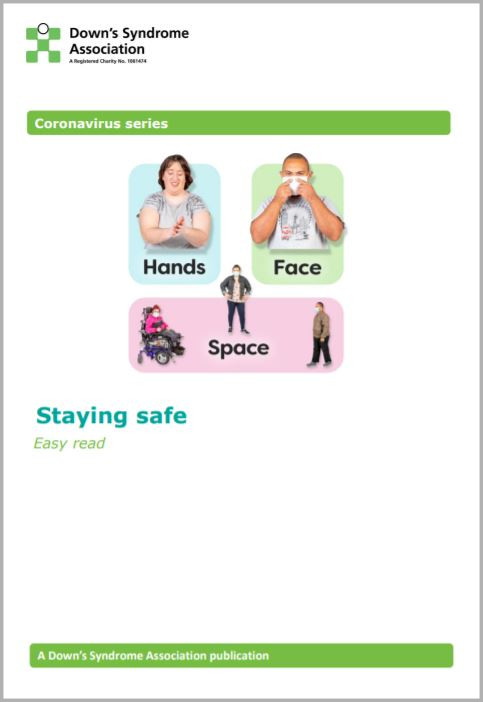4 January 2022
The government has issued its latest guidance for people who were previously considered as clinically extremely vulnerable (CEV) from Covid-19. This included all adults 18+ who have Down’s syndrome. Although the CEV list no longer exists and the shielding programme ended on 15 September 2021, the government has issued new guidance to those who were on the list to keep themselves safe this winter.
The guidance says that although you should continue to follow the same guidance as the general public, as someone with a health condition, you may want to consider, alongside any advice from your clinician, if additional precautions are right for you. These could include:
- considering whether you and those you are meeting have been vaccinated – you might want to wait until 14 days after everyone’s most recent dose of a Covid-19 vaccine before being in close contact with others.
- considering continuing to practice social distancing if that feels right for you and your friends.
- asking friends and family to take a rapid lateral flow antigen test before visiting you.
- asking home visitors to wear face coverings.
- avoiding enclosed crowded spaces.
 You can read the full guidance here.
You can read the full guidance here.
We have an Easy Read resource on Keeping Safe from Covid-19 which you can read here.
The Department of Health and Social Care have answered the following question for those who were formerly listed as critically extremely vulnerable (CEV), which included adults 18+ who have Down’s syndrome.
Q: Are there any plans to reintroduce shielding?
A: Given the improved protections against the virus (vaccines and treatments), and the known harms to physical and mental wellbeing that shielding can cause, the clinical advice is that it is not appropriate to reintroduce shielding.
Q: I was previously identified as CEV, what advice should I follow?
A: You should follow the general guidance on staying safe and preventing the spread of Covid-19. You may receive additional advice from your health professional. You may also want to consider additional precautions (as per the new guidance).
Q: Having Down’s syndrome means I am at higher risk from Covid-19. What should I do if I have symptoms of Covid-19?
A: If you have symptoms of Covid-19 (a high temperature, a new continuous cough or a loss or change to your sense of smell or taste or symptoms similar to a cold), self-isolate straight away and take a lateral flow test as soon as possible. All people who have Down’s syndrome and are aged 12+ in England should now be sent a PCR test kit to keep at home. If you test positive, you will be eligible for two new types of treatment. Read more here.
Q: Are children with Down’s syndrome eligible for a vaccine?
On 22 December, the government announced that children aged five to 11 years in a clinical risk group (as defined in the Green Book and which includes Down’s syndrome), should be offered two doses of the Pfizer-BioNTech Covid-19 vaccine with an interval of eight weeks between the first and second doses. We have been told that exact details of how this will be organised are being finalised and we will update you as soon as we are told any more. The NHS will contact you when it is your child is to be invited for a vaccine. Read more here.
